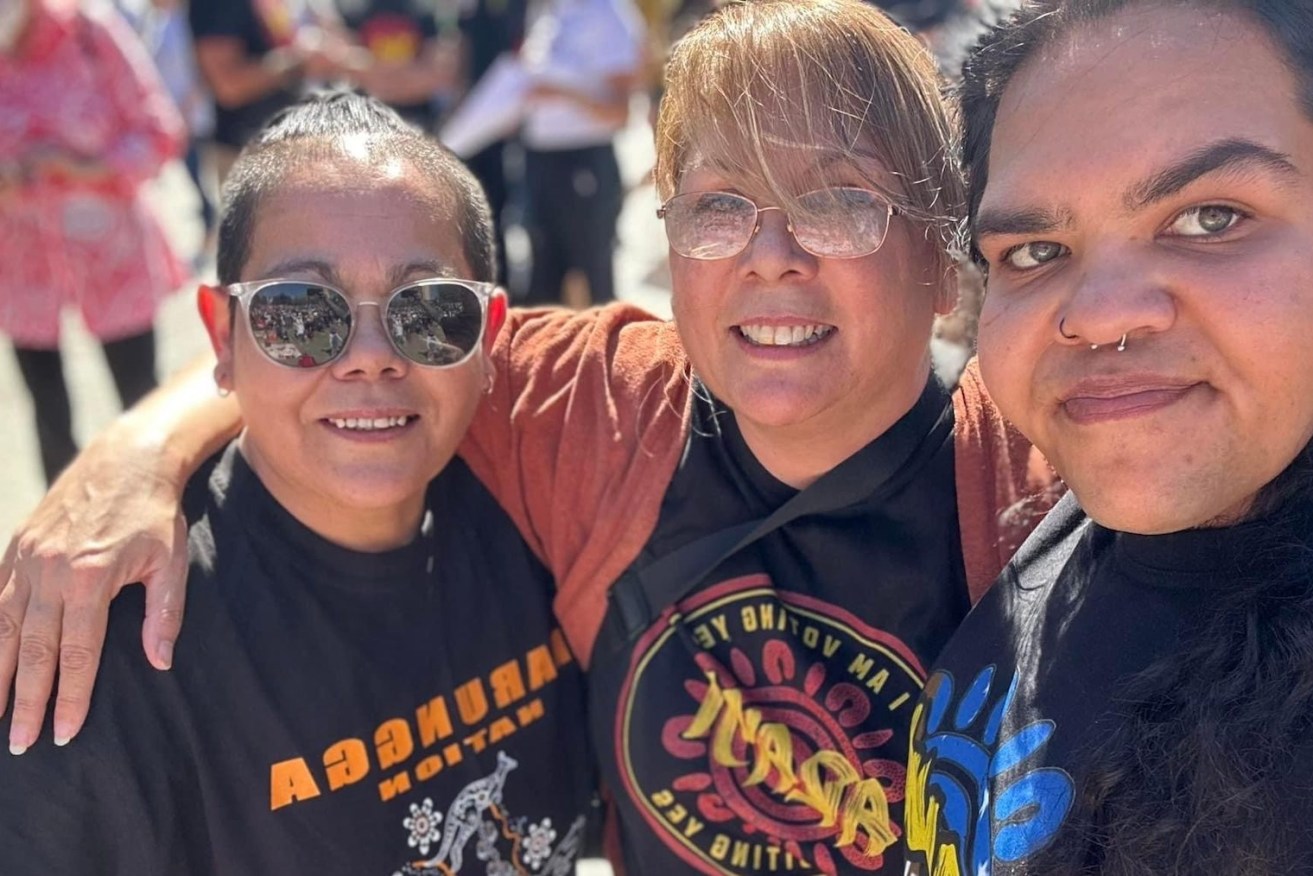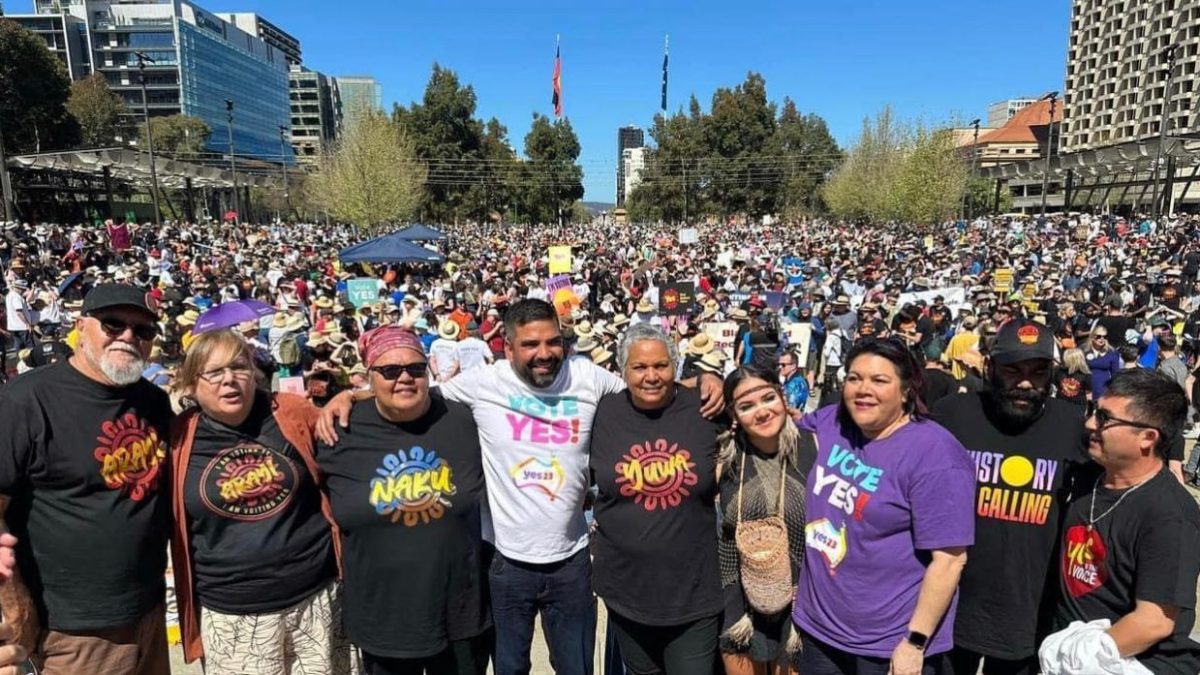Referendum t-shirts say Yes to Voice
Artist Colleen-Ara Palka Strangways says making t-shirts with “yes” written in 32 different languages was uplifting in a debate for a Voice to Parliament that has been divisive.


Wearing Yes to the Voice t-shirts in Aboriginal languages. From left: Violet Buckskin, Colleen-Ara Palka Strangways and Keisha Jackson. Photo: supplied
The Arabana woman and some friends, including her cousin Paul Tanner, created t-shirts for the recent Yes vote rally in Adelaide with the word ‘Yes’ spelled out in 32 different Aboriginal languages – including Arabana, Pitjantjatjara and Adnyamathanha.
During the event, Strangways stood on the stage with South Australia’s first indigenous Attorney-General Kyam Maher and others wearing the t-shirts to teach thousands of South Australians how to voice the word Yes in some of those languages.
“Going on the march and seeing them happening all around Australia showed me there’s a lot more love there than there is hate,” Strangways said.
“When all of this started and we started seeing all the racist comments and we just felt like it was with all of the Adam Goodes comments, we got a big flurry of racist comments and we felt like it had all started again and we all just felt so deflated.
“We all talked to each other and said ‘just don’t read the comments, but there is all the anger and hurt and feeling like outcasts in our own country.
“Then I went to the Yes vote march and it was all about love and it was just a feeling of relief and you think ‘well, sometimes it gets worse before it gets better’.”

Colleen-Ara Palka Strangways, second left, at the Yes vote referendum rally in Adelaide. Photo: supplied
Strangways believes a First Nations Voice to Parliament is a first step to improving the gap between indigenous and non-indigenous Australians, in health, life expectancy and education.
But she says animosity surrounding the campaign has been concerning.
“The referendum for a voice, it’s an advisory body, land rights are so separate from what this is… but it’s part of the misinformation, there are people out there spreading all this hate,” the Adelaide resident who has also worked in the homeless sector, says.
“It has been sad, it’s just a voice, an advisory body with no power of veto, it will give advice to government and help close the gap, it can’t be any clearer than that.
“But people are so emotional about it, you are seeing abuse in the street, we are getting spat on, people doing letter box drops or putting posters on poles are being abused, posters are being defaced, I’ve never seen anything like it.”
Strangways fears the No campaign has successfully taken on American-style tactics to muddy the campaign with “lies and misinformation”.
“I was talking to a few of my family and friends and we feel like it’s allowed the racists to come out and have their say and vent and that kind of started to create this big division,” she says.
“People aren’t looking into it and being critical on what they are hearing, they are being spoon fed and their inner biases are tapping into that, it’s coming from a scared place inside of them.”
Strangways still feels positive that there is a swing back to the Yes vote as early polling stations open ahead of the vote on Saturday, October 14.
And she tentatively wore one of her Yes vote t-shirts on a shopping expedition recently and returned home without any negative comments despite feeling like “I had a target on me”.
Most of all, she is holding onto feeling uplifted by the Yes vote march in the city and knowing there are many supporters in delivering an indigenous Voice to Parliament.
“My father is an Arabana elder and he lives in Alice Springs,” she says, telling how she was born in 1969, two years after the referendum that recognised Aboriginal people as Australian citizens.
“I rang my father at home after the rally and I said ‘Dad, we were out the front and we got a big crowd of thousands of people speaking Arabana and he was like ‘hooray’.”
“I think after this we all need healing, whether it’s Yes or No, this country needs a lot of healing, we are not as forward thinking as we think we are, we are better than that, we can be better.
“Where is the empathy for people, where has that gone?”




